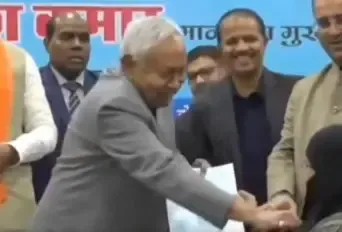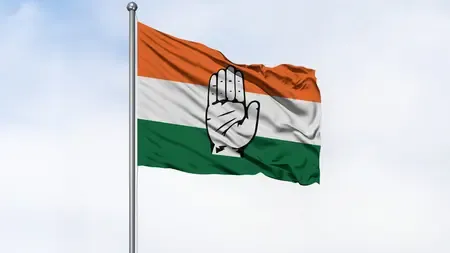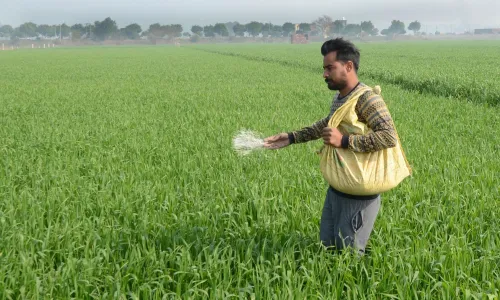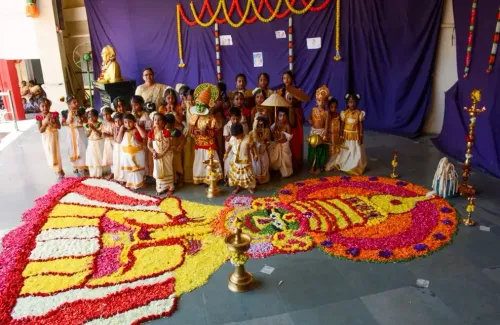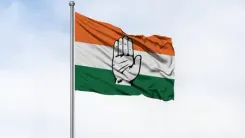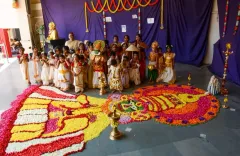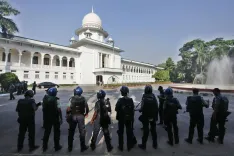How Did Operation Sindoor Showcase PM Modi’s Political Resolve and Military Prowess?
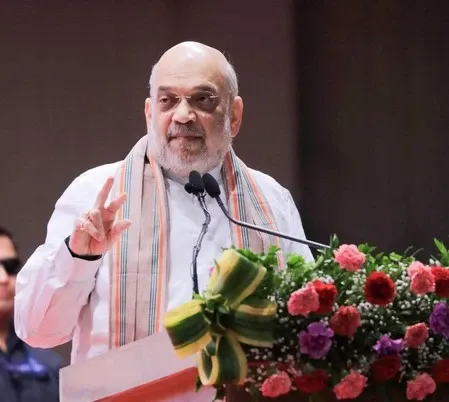
Synopsis
Key Takeaways
- Operation Sindoor has effectively exposed Pakistan's role in terrorism.
- Prime Minister Modi's leadership has transformed India's counter-terrorism strategy.
- The operation emphasized precision in targeting terrorist camps while avoiding escalation with Pakistan.
- India's military capabilities have evolved significantly since 2014.
- The BSF is instrumental in securing India's challenging borders.
New Delhi, May 23 (NationPress) Union Home Minister Amit Shah emphasized on Friday that Operation Sindoor has thoroughly unveiled Pakistan's actions to the global audience, confirming that terrorism in India is indeed backed by Pakistan.
During the 22nd Border Security Force (BSF) Investiture Ceremony and the Rustamji Memorial Lecture, he commended the Indian Armed Forces and attributed the transformation of India's counter-terrorism strategy to Prime Minister Narendra Modi's leadership, which enabled significant actions like Operation Sindoor.
Shah highlighted India's approach by stating, 'We did not destroy any Pakistani military installations nor did we target an airbase. Our focus was solely on dismantling terrorist camps that perpetrated crimes on our territory.'
He acknowledged that the success of Operation Sindoor stemmed from a blend of political leadership, intelligence inputs, and military prowess.
'Operation Sindoor is the product of our Prime Minister's unwavering political will, accurate intelligence from our agencies, and the Army's extraordinary striking capabilities. When these elements converge, we achieve Operation Sindoor,' he remarked.
Shah asserted that Pakistan is now fully exposed due to Operation Sindoor.
'As a result of Operation Sindoor and subsequent developments, Pakistan has been laid bare. Terrorism in India is orchestrated by Pakistan. When we targeted the terror camps in Pakistan, it was the Pakistani army that retaliated. The world witnessed senior Pakistan Army officials at the funerals of slain terrorist leaders, visibly participating in the ceremonies,' the Home Minister conveyed to the BSF audience.
Reflecting on the evolution of India's security strategy after 2014, Shah remarked, 'For years, our nation faced terrorism without an adequate response. Following Narendra Modi's assumption of the Prime Minister's office, we saw our first significant retaliation in Uri, leading to a surgical strike. The Pulwama attack prompted a strong airstrike from the Indian Army, once again eliminating terrorist strongholds.'
The Home Minister praised the swift and strategic actions of the Indian Armed Forces in response to the terror incident in Pahalgam.
'Globally, several nations have reacted to terrorist attacks. However, India's response stands apart. Following the attack in Pahalgam, we initiated Operation Sindoor, which swiftly dismantled 9 terrorist bases, including 2 major headquarters,' Shah stated.
Additionally, acknowledging the BSF’s vital role, HM Shah noted, 'The decision to assign one force for border security resulted in the BSF being tasked with overseeing the two most challenging borders – Bangladesh and Pakistan – and you have effectively secured these areas with your capabilities.'


